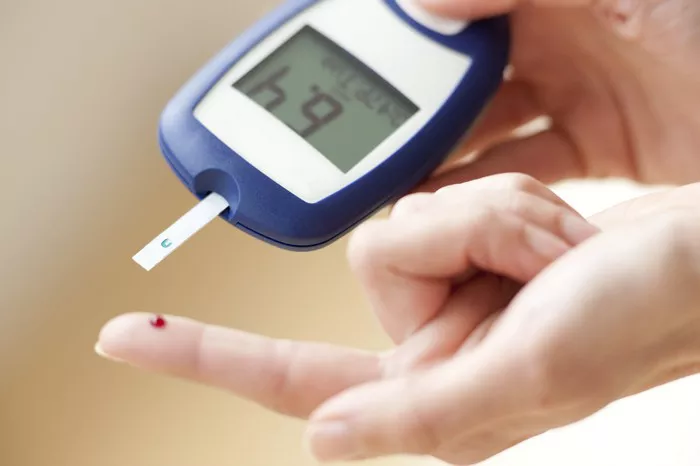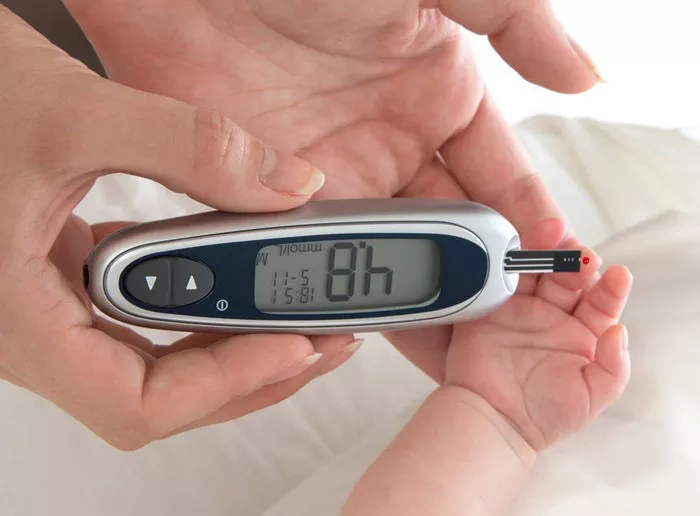High blood glucose levels, also known as hyperglycemia, occur when there is an excessive amount of glucose circulating in the bloodstream. In the context of diabetes, high blood glucose is a hallmark characteristic and can have significant implications for overall health. Maintaining blood glucose within a healthy range is essential for optimal health, as prolonged hyperglycemia can lead to various complications, including cardiovascular disease, nerve damage, kidney damage, and vision problems.
Causes of High Blood Glucose
Inadequate Insulin Production: In type 1 diabetes, the pancreas fails to produce sufficient insulin, the hormone responsible for regulating blood glucose levels. Without enough insulin, glucose cannot enter cells to be used for energy, resulting in elevated blood glucose levels.
Insulin Resistance: Type 2 diabetes is characterized by insulin resistance, where cells become less responsive to insulin’s effects. As a result, glucose remains in the bloodstream, leading to high blood glucose levels.
Dietary Factors: Excessive consumption of carbohydrates, especially simple sugars and refined grains, can cause spikes in blood glucose levels. Sugary foods and drinks can lead to rapid increases in blood glucose, contributing to hyperglycemia over time.
Lack of Physical Activity: Sedentary lifestyles can contribute to insulin resistance and high blood glucose levels. Regular exercise helps improve insulin sensitivity, allowing cells to better utilize glucose for energy.
Stress: Stress triggers the release of hormones such as cortisol, which can raise blood glucose levels. Chronic stress may contribute to persistent hyperglycemia in some individuals.
Illness or Infection: Illnesses or infections can cause temporary spikes in blood glucose levels due to the body’s stress response. This is particularly relevant for individuals with diabetes, as illness can disrupt blood glucose control.
Medications: Certain medications, such as corticosteroids used to treat inflammation or autoimmune conditions, can elevate blood glucose levels as a side effect. It’s essential for individuals taking such medications to monitor their blood glucose levels closely.
Symptoms of High Blood Glucose
Thirst and Increased Urination: High blood glucose levels can lead to increased thirst (polydipsia) and frequent urination (polyuria) as the body attempts to eliminate excess glucose through urine.
Fatigue: Elevated blood glucose levels can cause feelings of tiredness and fatigue, as cells may not be able to efficiently use glucose for energy.
Blurred Vision: Hyperglycemia can affect the shape of the lens in the eye, leading to temporary changes in vision and blurred vision.
Slow Wound Healing: Chronic high blood glucose levels can impair the body’s ability to heal wounds, leading to delayed wound healing processes.
Complications Associated with High Blood Glucose
Cardiovascular Complications: Prolonged hyperglycemia increases the risk of cardiovascular disease, including heart disease, stroke, and hypertension. High blood glucose levels can damage blood vessels and contribute to the buildup of plaque in arteries.
Neuropathy: Nerve damage (neuropathy) is a common complication of diabetes, characterized by symptoms such as numbness, tingling, or pain in the extremities. High blood glucose levels contribute to nerve damage over time.
Nephropathy: Chronic high blood glucose levels can damage the kidneys, leading to kidney disease (nephropathy) and eventually kidney failure if left untreated.
Retinopathy: Elevated blood glucose levels can damage the blood vessels in the retina, leading to vision problems and potentially irreversible retinal damage (retinopathy).
Management of High Blood Glucose
Medication: Glucose-lowering medications, such as insulin or oral medications like metformin, are commonly used to manage high blood glucose levels in individuals with diabetes. These medications help lower blood glucose levels and improve overall glycemic control.
Diet: Dietary management plays a crucial role in controlling blood glucose levels. A balanced diet that includes whole grains, fruits, vegetables, lean proteins, and healthy fats can help stabilize blood glucose levels. Monitoring carbohydrate intake and choosing complex carbohydrates over simple sugars can prevent spikes in blood glucose.
Exercise: Regular physical activity is beneficial for managing blood glucose levels and improving insulin sensitivity. Aim for at least 150 minutes of moderate-intensity aerobic exercise per week, along with strength training exercises.
Monitoring: Regular blood glucose monitoring is essential for individuals with diabetes to track their blood glucose levels and adjust treatment as needed. Continuous glucose monitoring systems can provide real-time data to help manage blood glucose levels effectively.
Prevention Strategies
Healthy Lifestyle: Adopting a healthy lifestyle that includes a balanced diet, regular exercise, stress management, and adequate sleep is crucial for preventing high blood glucose levels and reducing the risk of diabetes complications.
Medication Adherence: Adhering to prescribed medications and attending regular medical check-ups is essential for monitoring blood glucose levels and overall health. Work closely with healthcare providers to develop a personalized diabetes management plan.
Conclusion
Understanding the causes, symptoms, and management of high blood glucose levels is essential for individuals with diabetes to maintain optimal health and prevent complications. By addressing the underlying factors contributing to hyperglycemia and implementing appropriate management strategies, individuals with diabetes can achieve better glycemic control and improve their overall quality of life. It’s important to consult with healthcare professionals for personalized advice and guidance on managing blood glucose levels effectively. Taking proactive steps to manage diabetes can help individuals lead healthier, more fulfilling lives.
Related Topics:
Hemoglobin A1c vs Glucose: What is the Difference?
Plasma Glucose vs Blood Glucose: What is the Difference?
How Often Should Blood Sugar Levels Be Checked?























